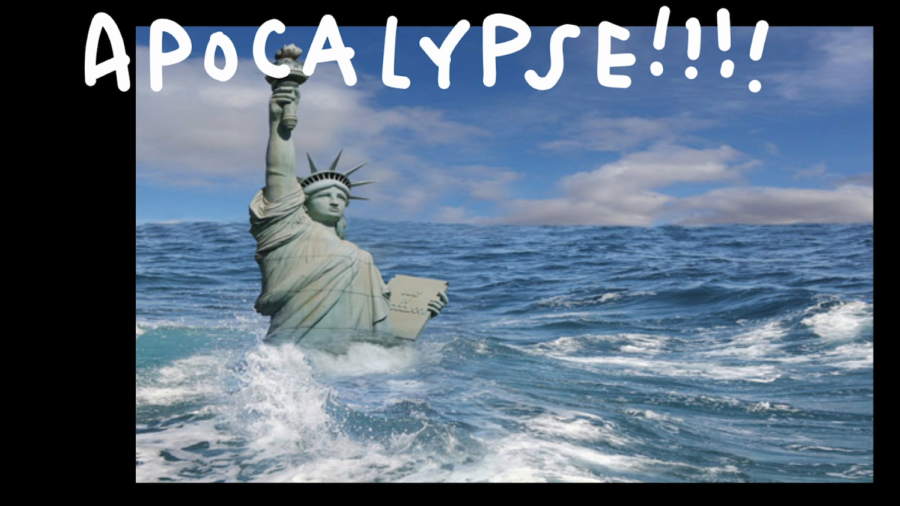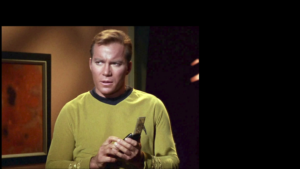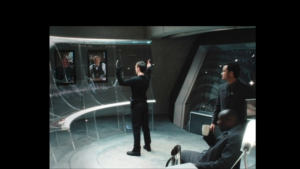Juli Sikorska: Yeah I would like to pick up on all of the apocalypses that we have been talking about, the dystopias. Because it’s something that we encounter on the news all the time. The atomic threats, the killer viruses, and all of the climate change conversation that we are having still these days. And we really seem to indulge in dystopian thinking. And we love it. And I really wonder why that happens. I don’t know how you feel about this, but it really stresses me out. And it kind of bothers me that it’s still a lot of times easier to imagine the end of the world than how we could live on a sustainable planet.
And so, I’ve been thinking about this. And where I got my inspiration was listening to a podcast called Imaginary Worlds. Does anybody else here know it? Okay, a few, a few. It’s a really wonderful podcast. It talks about how science fiction has created heroes and put them in entirely new imaginary worlds around science and technology. And that if you show people those inspiring worlds, they will find ways to build the things that they saw.
Like for example, who of you has seen Star Trek, Captain Kirk using the communicator. Which looks like a very early cell phone to me. Or Minority Report, with touch interfaces, gesture interfaces, that we are in the middle of the building right now.
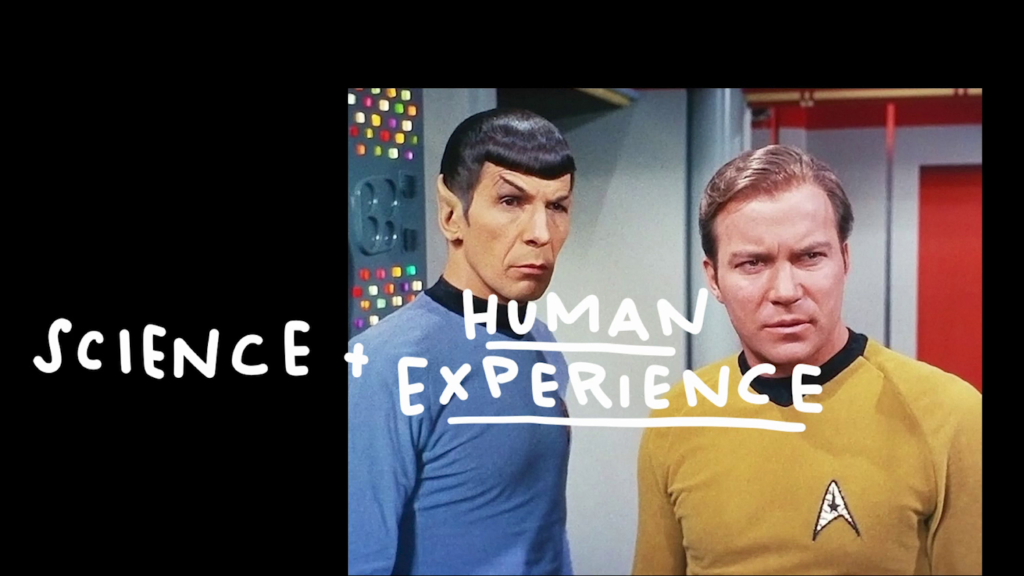
So, what science fiction did here is that on top of the science and the worlds they create around it, they put this layer of human experience of how will we live with those technologies that they imagined in the futures, how do people interact with those technologies, and, how do they interact with each other in the new worlds that we created.
So I thought, if we can create such inspiring stories for life in space, what if we also create inspiring stories for living on a healthy planet.
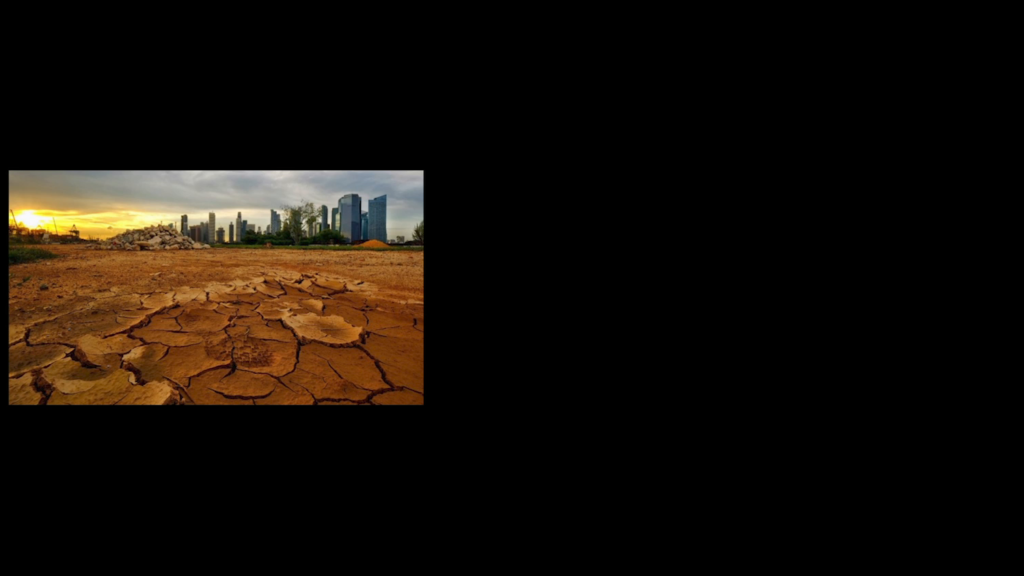
So, what is wrong with the way that we talk about climate change today still way too many times? For one, it often so looks like this. A pile of dirt. If you Google “climate change” this is not the only picture like this. Right. There are no humans in there.
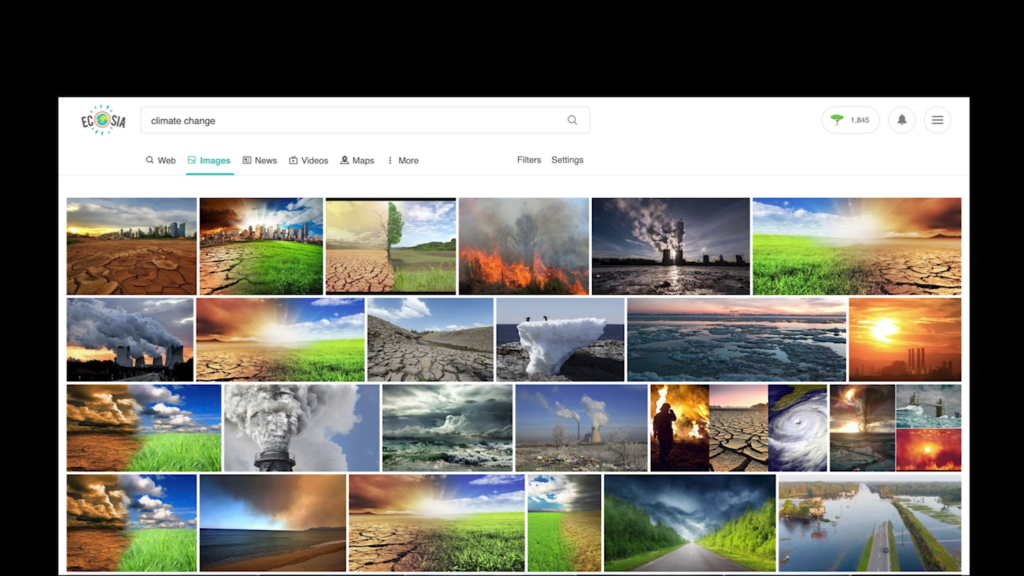
If you Google climate change, this is the entire front page of image search, still, these days. We still talk in science and numbers. We tend to pick up climate jargon as people start engaging with this. And we don’t really show the human experience enough yet.
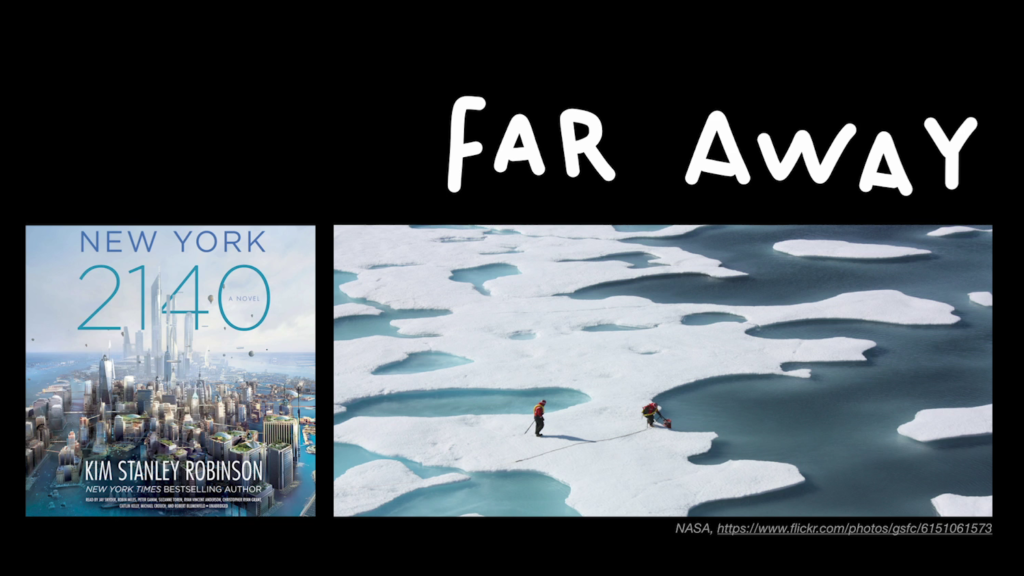
It’s still really far away. Far away in time as you know, New York being flooded in 2140. Or a really far away location, where we still talk about those global changes but not about the local ones, especially being in cities that have not been visibly affected by it as much. Cities away from coasts, like us being here in Milan.
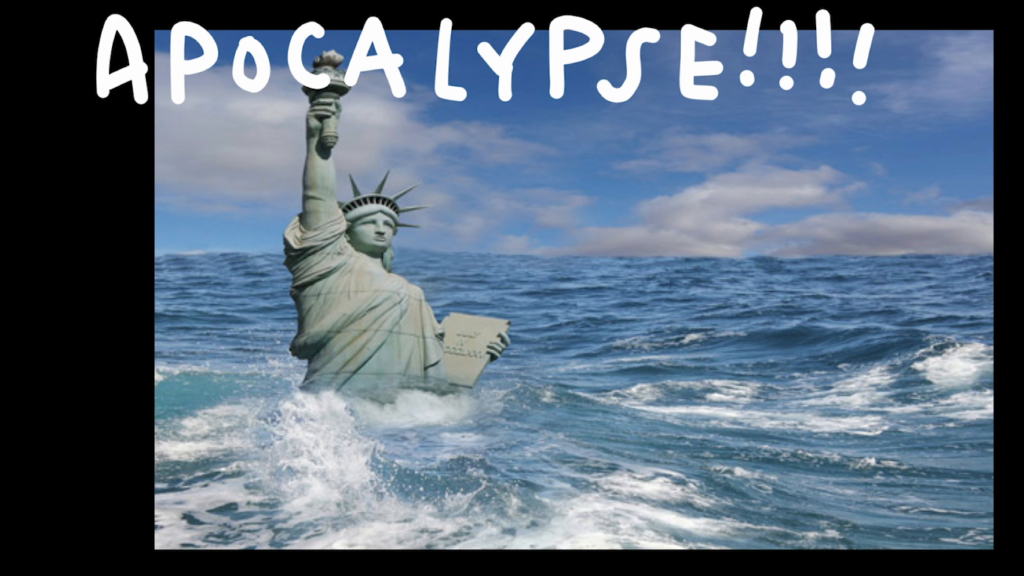
And the third thing that still really surprises me so much are all of the dystopian apocalypse scenarios. And I’ve been working with experience design makers and escape room makers, and just yesterday I read a few names for an escape room about climate change. And they were looking for a name: No Tomorrow. We’re All Fucked. Ecopanic. Last Call. Here’s How We All Died.
Yeah, some stories are just…slightly negative, some are just plain dystopian. And how do those stories make you feel? Because to me it’s really anxiety, it’s stress, it’s guilt, and it feels like I have no agency whatsoever.
So. What I think that we need to do next is that we really need to inspire. And that we also need more climate fiction. And here are just three quick things that I think we can do better as we design fictions. And we’ve already seen wonderful examples so I’m just really picking up on those and just summarizing it really quickly.
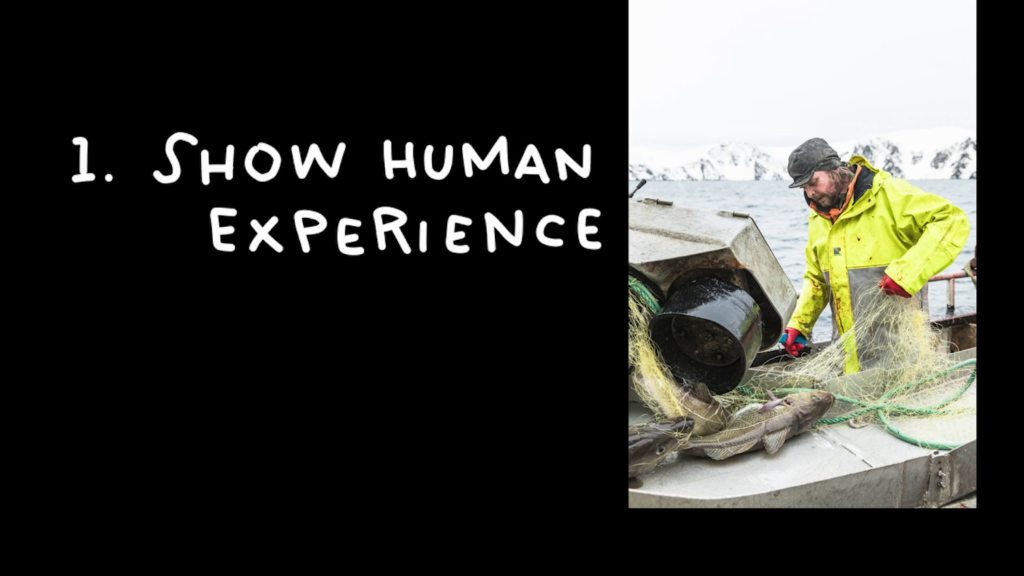
One, let’s show human experience. This is something that we as designers already are really good at. So showing all of the changes to human life. How is it already affecting us on a daily basis. On the systemic level like how does it affect the economy but also what does it do to my finances. How does it affect my job? What will I be doing for a job? How do I get there? How do I get back home? What do I do on Sunday afternoons? All of those little mundane things.
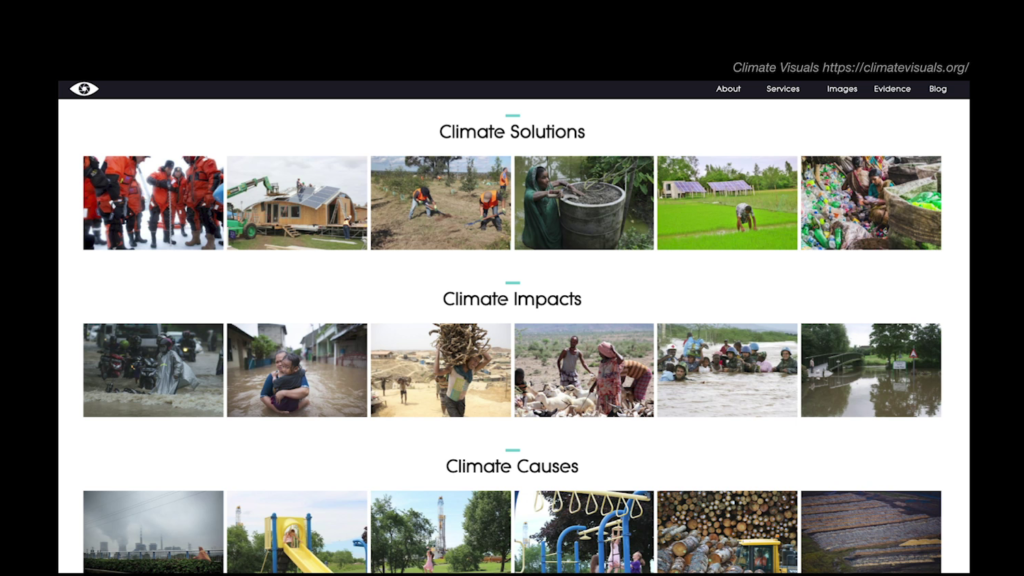
The next… This is also what it could look like, so Climate Visuals is a really good database of images that are already showing the effects on humans of climate change, which I highly recommend.
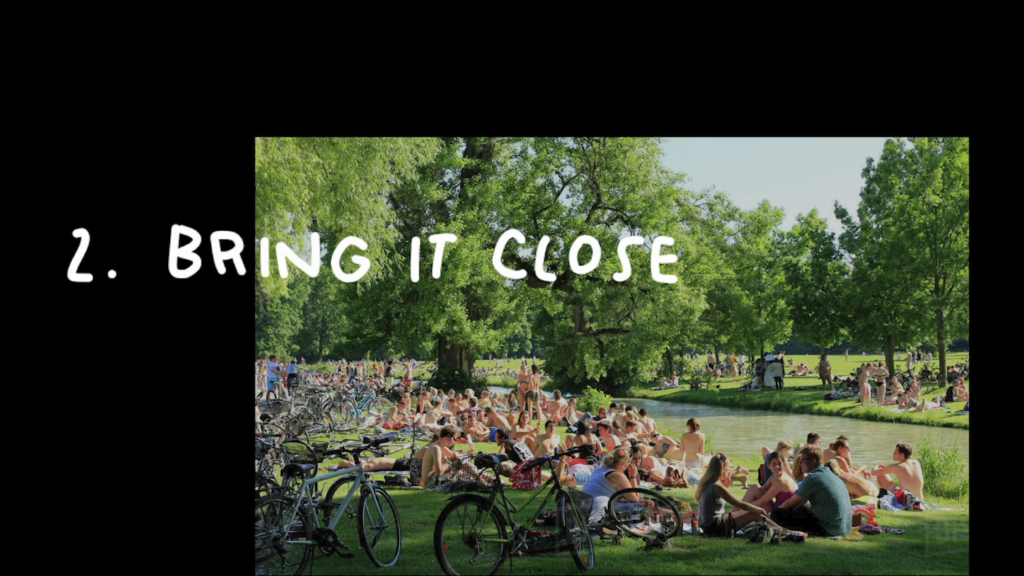
Then next, bringing it close. Bring it close in time. So how can we show the effects that will happen within the next ten years. So you’re also saying as 2030 is when we are supposed to have cut down our climate emissions, but also bringing it to the places where we live. So I’m from Munich and I was looking at how does Munich experience climate change. And we have quite intense heat waves in the last few years. And like many cities, we also have urban heat islands, which are just areas in town that are warmer than surrounding areas. And so I thought, what if in 2030 you would have an app that would let you navigate through the different microclimates of the city to forage for wild mushrooms.
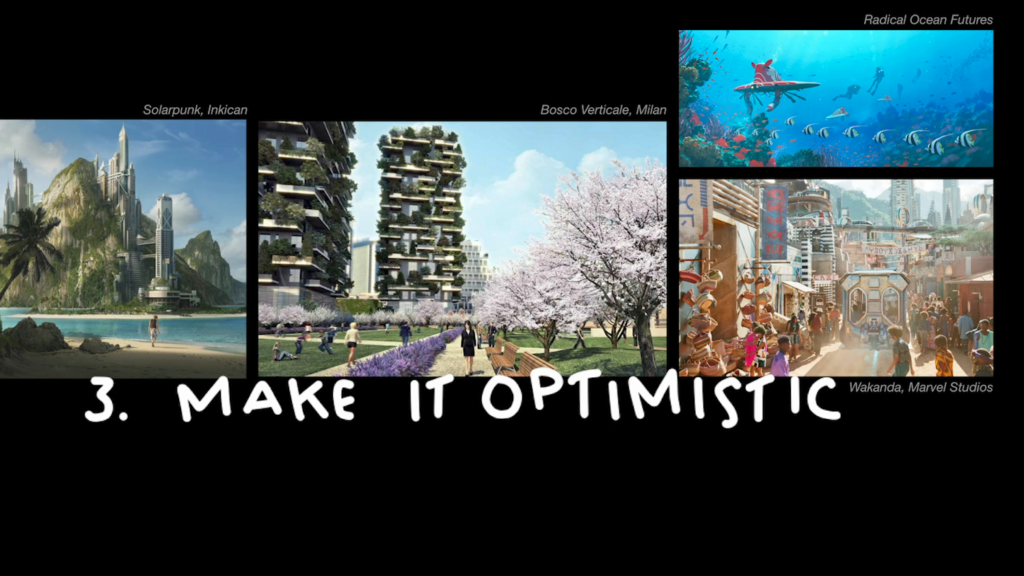
And then number three is making it optimistic. Not utopian. So really I’m talking about being an optimistic realist about all of the protopias that we heard about. And just showing many alternative visions to the world the way it is now. There are really great examples out there. One that I want to mention is solarpunk, which is a growing genre of speculative art and fiction writing that is focusing on only showing positive depictions of life with climate change.
I think that the main point of the value that we can provide is to show what the world can look like, and what we all can do, and how we can future together to get there. And because its climate fiction, I do think that we create a lot of fictions every single day as designers, and as people who tell stories. And so I’m challenging myself, and I hope that you can challenge yourself too, that next time that you are talking about the future and the climate, that you just think about these three things and that we can build the world we want to live in. Thank you.
